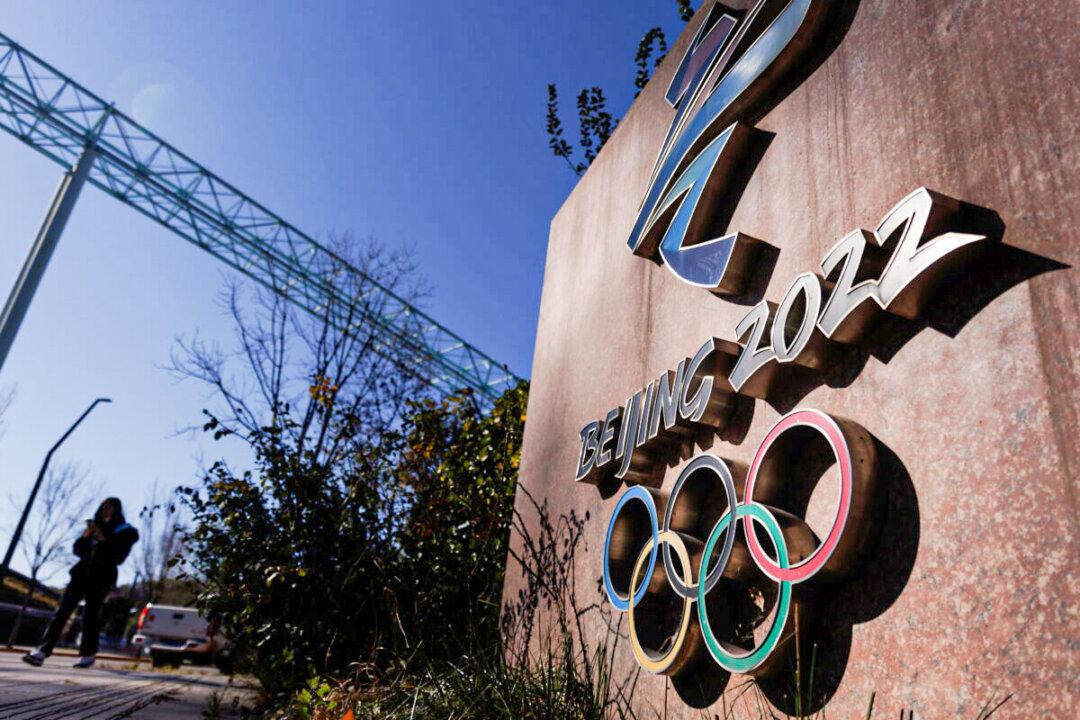President Joe Biden said Nov. 18 that the White House is considering a diplomatic boycott of the Beijing Winter Olympics over Beijing’s human rights abuses. Such a move would mean that the administration would not send dignitaries to the Games, but American athletes would still be allowed to complete.
Speaking to reporters as he hosted Canadian Prime Minister Justin Trudeau in the Oval Office, Biden said backing a boycott of the Olympics in February is “something we’re considering.”
The remarks came amid intensifying calls by global rights groups and some lawmakers for a symbolic U.S. boycott of the games in Beijing over the Chinese regime’s wide-ranging rights abuses, from its repression of ethnic Muslim minorities in Xinjiang to its clampdown in Hong Kong.
The United States and other nations traditionally send high-level delegations to each Olympics. First lady Jill Biden led the American contingent to the Summer Olympics in Tokyo this year, and second gentleman Doug Emhoff led a delegation to the Paralympic Games.
White House press secretary Jen Psaki said there was no timeline for a decision by the president on whether to go through with a possible boycott.
Biden virtually met with Chinese leader Xi Jinping on Monday, but the issue of the Olympics did not come up, according to the White House.
Under a possible diplomatic boycott, American athletes would be unaffected. But some say that this is not enough.
Sen Tom Cotton (R-Ark.) on Thursday called on the administration to implement a full boycott of the games, meaning “no athletes, no administration officials, no corporate sponsors.”
This move was necessary, Cotton said, to protect athletes from threats posed by the Chinese regime, including its “ubiquitous” surveillance, DNA harvesting, and practice of taking hostages for political purposes.
In addition, the games should be boycotted because of the Chinese Communist Party’s “crimes against the United States, and the civilized world, and its own people,” Cotton said at a press conference at the Capitol building.
American corporate sponsors of the games have also been put under the spotlight. Last week, Human Rights Watch, a New York-based advocacy group, called on major sponsors of the Beijing Olympics to explain why they have remained largely silent on the Chinese regime’s rights violations.
The rights group said that it had reached out to all but one of the International Olympic Committee’s so-called TOP sponsors—and leading broadcast rights holder NBC—in lengthy letters almost six months ago.
The only reply came from sponsor Allianz, which it wrote only last month.
“We stand behind the Olympic Movement and our longstanding support for its ideals will not waver,” Allianz said.
Human Rights Watch on Nov. 12 said sponsors risk “being associated with an Olympics tainted by censorship and repression.”





